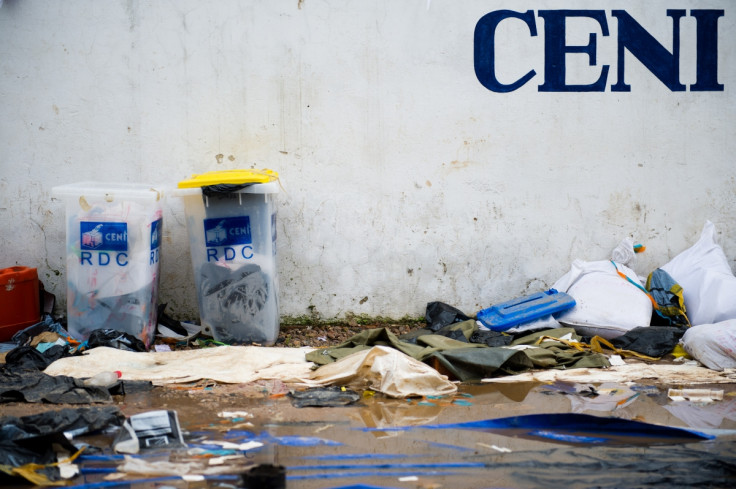DRC: Presidential elections face 'minimum' one-year delay as Kinshasa brings in riot brigade

Presidential elections in the Democratic Republic of Congo (DRC) face a minimum delay of 13 months and 10 days, according to a timetable purportedly prepared by the country's electoral commission (CENI). Earlier in January, the UK Foreign and Commonwealth Office (FCO) told IBTimes UK that it is still "technically possible" for the vote to be held on time in November 2016.
According to the chart (dated 14 January), a partial revision of the voter register would take just over 13 months, while a complete revision would take 16 months and a day. CENI estimates the updates could cost as much as $290m (£202.5m).
The timetable was posted on Twitter by Michael Tshibangu, a lawyer and president of UK-based Association for Development and Democracy in Congo (ADDC). CENI has said it is unable to confirm the legitimacy of the note but two Congolese sources have vouched for its authenticity, according to Reuters.
Cette CENI a pour rôle l'accomplissement des désirs de la majorité #RDC pic.twitter.com/OPBlVy6GRV
— Michael Tshibangu (@MichaelTshi) January 26, 2016Efforts to pave the way for presidential elections have been consistently undermined by Kinshasa. This in turn is increasingly giving credence to charges against the current president, Joseph Kabila, who has been accused of seeking to unconstitutionally prolong his rule into a third term. He came to power in 2001 following the assassination of his father, Laurent Kabila, and has already served two full terms following disputed elections in 2006 and 2011.
He is constitutionally bound to step down from office after his mandate expires in December 2016 but critics accuse him of using a number of tactics to stay in power. According to Human Rights Watch (HRW), these include a violent clamp down on "activists and political opponents who opposed political manoeuvres" by Kabila to prolong his rule, killings of protesters, forced disappearances and a crackdown on news organisations in 2015.
Earlier in January, Danae Dholakia, the UK's Special Envoy to Africa's Great Lakes region, told IBTimes UK: "We judge at this point in time, that it's still technically possible to have presidential elections in November 2016 if the political momentum is there, it's still technically possible."
Dholakia also acknowledged that holding elections in a country two-thirds the size of Western Europe poses significant hurdles, but Kinshasa had shown "a signal that the government does want elections to go ahead on time, but at the same time there's a signal that it's all terribly complicated, there are many hurdles to get through and there's a sense of a lack of confidence that the elections can happen on time".
She also added that the mixed messages from the Kinshasa "make us rather doubtful that the government is wholly committed to elections happening on time".
Africa's largest copper producer is bracing itself for a series of rallies called for by Citizen Front 2016, a coalition of opposition parties and civil society groups, with a march scheduled to take place on 16 February. Previous protests have been met with brutal government repression across the mineral-rich nation.
On 27 January, Bloomberg's Kinshasa correspondent tweeted images of the government taking delivery of large quantities of riot gear accompanied by the question: "What's it getting ready for?"
Kinshasa takes delivery of new riot gear. What's it getting ready for? pic.twitter.com/sEBXR3E6bU
— Tom Wilson (@thomas_m_wilson) January 27, 2016New water cannons for DRC police pic.twitter.com/TjMLWMvmGr
— Tom Wilson (@thomas_m_wilson) January 27, 2016IBTimes UK attempted to contact CENI for comment but its website does not provide details on how to get in touch via telephone or email. We also contacted the DRC's embassy in London via phone and email, but did not receive a reply at the time of publication.
© Copyright IBTimes 2025. All rights reserved.






















